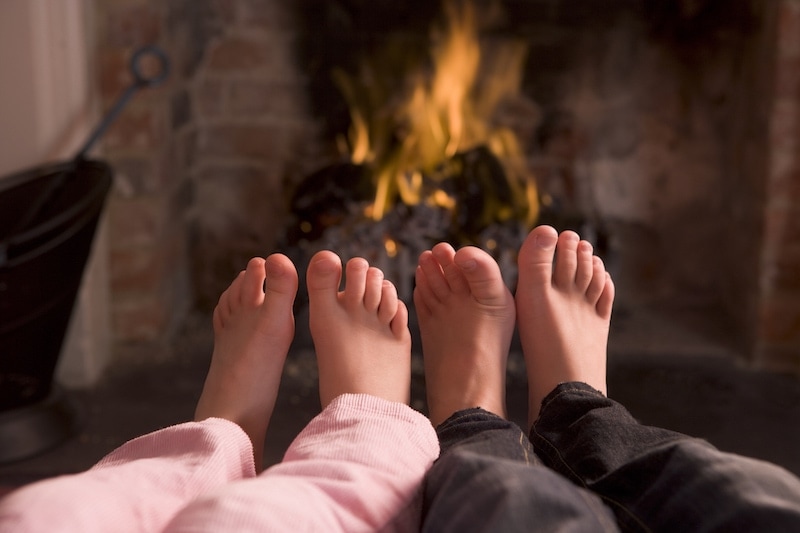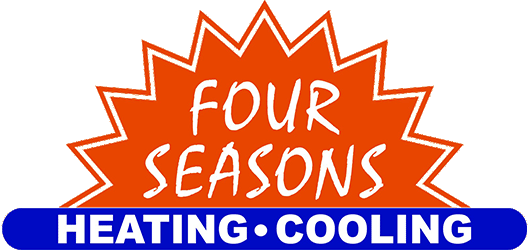How Do I Know When to use My Heat Pump's Auxiliary Heat?

“How do I know if I’m using my heat pump’s auxiliary electric heat all the time and costing myself a lot of extra money?” This is a common question here in Beaufort, NC. Heat pumps are highly efficient, but they can be confusing as well. In order to take advantage of their efficiency, you need to be sure they’re operating the way they’re intended to operate.
Refresher––How a Heat Pump Works
It’s important to first understand how a heat pump works before getting the answer to the question above. A heat pump is different than a furnace in that it transfers heat from one area to another instead of creating its own heat. It actually operates like an air conditioner in reverse. It draws heat in from the outdoors and moves it indoors, then it does the reverse with cool air when it’s operating as an air conditioner for your home––it removes the heat from indoors and moves it outside.
How Does Auxiliary Heat Work?
It just makes sense that heat pumps struggle drawing warm air in temperatures less than 35ºF (or 40ºF, depending on who you talk to), so they need assistance in creating the desired indoor temperatures. That’s where your heat pump’s auxiliary heat enters the picture. Your auxiliary heat supplements your heat pump’s warm air. The majority of auxiliary heat sources are electric heat, using a strip of electric coils much like the ones in your toaster. (Some heat pumps do rely on gas or oil, but we’re addressing electric heat as supplementation here though the principles are the same.)
When your heat pump can no longer pull the necessary heat from the outdoors, your auxiliary heat will automatically jump in to help. This means your heat pump is still working hard to get that heat, but it just needs a boost, which is where the word supplement comes in. Your auxiliary heat supplements your heat pump’s heat––it doesn’t replace it. They will work in tandem when the temperatures drop to those cold numbers.
Difference Between Auxiliary Heat and Emergency Heat
Knowing the difference between your heat pump’s auxiliary heat and emergency heat will help address the question from above.
Your auxiliary heat, as just described, supplements your heat pump’s heat when it needs it. On the other hand, your emergency heat takes over, or replaces, your heat pump’s heat. Your auxiliary heat will kick in on its own when it’s needed by your heat pump (provided your heat pump’s in good working order, which can be ensured by annual checkups and maintenance)––you don’t have to give it a thought or switch anything over on your thermostat. Just leave your thermostat’s setting on Heat, and let it do its thing.
By contrast, your emergency heat is meant to be a true backup for your heat pump if there’s an emergency and it stops working. The emergency heat completely takes over heating your home for your heat pump, shutting down your heat pump. And this is completely within your control. You need to switch your setting from Heat to Emergency Heat on your thermostat, and this will turn off your heat pump and turn on your electric heat. This is where your energy efficiency disappears and your high energy bills appear. Do not turn on your emergency heat unless your heat pump no longer works. Do not switch to emergency heat when the outdoor temperatures dip below 35ºF––your auxiliary heat will automatically step up to supplement your heat pump. And if you do find yourself in the position of needing to use your emergency heat, turn it on, but then call one of our Four Seasons Heating & Cooling technicians to come out to service your heat pump. If done in a timely manner, you may not even notice the issue reflected in your energy bill.
Contact Us
So to directly answer the question above––you will only solely run on electric heat by switching to Emergency Heat on your thermostat, and you’ll know you’ve done that. When your heat pump uses its backup auxiliary heat to help it heat your home, you won’t notice. Of course, if your heat pump isn’t performing as described or if it needs servicing, you should call one of our professionals at Four Seasons Heating & Cooling to assess the situation and correct it. We can be reached at 252-247-5500.
Need HVAC Service?
Contact the experts at Four Seasons Heating & Cooling.
Call us at 252-247-5500!
